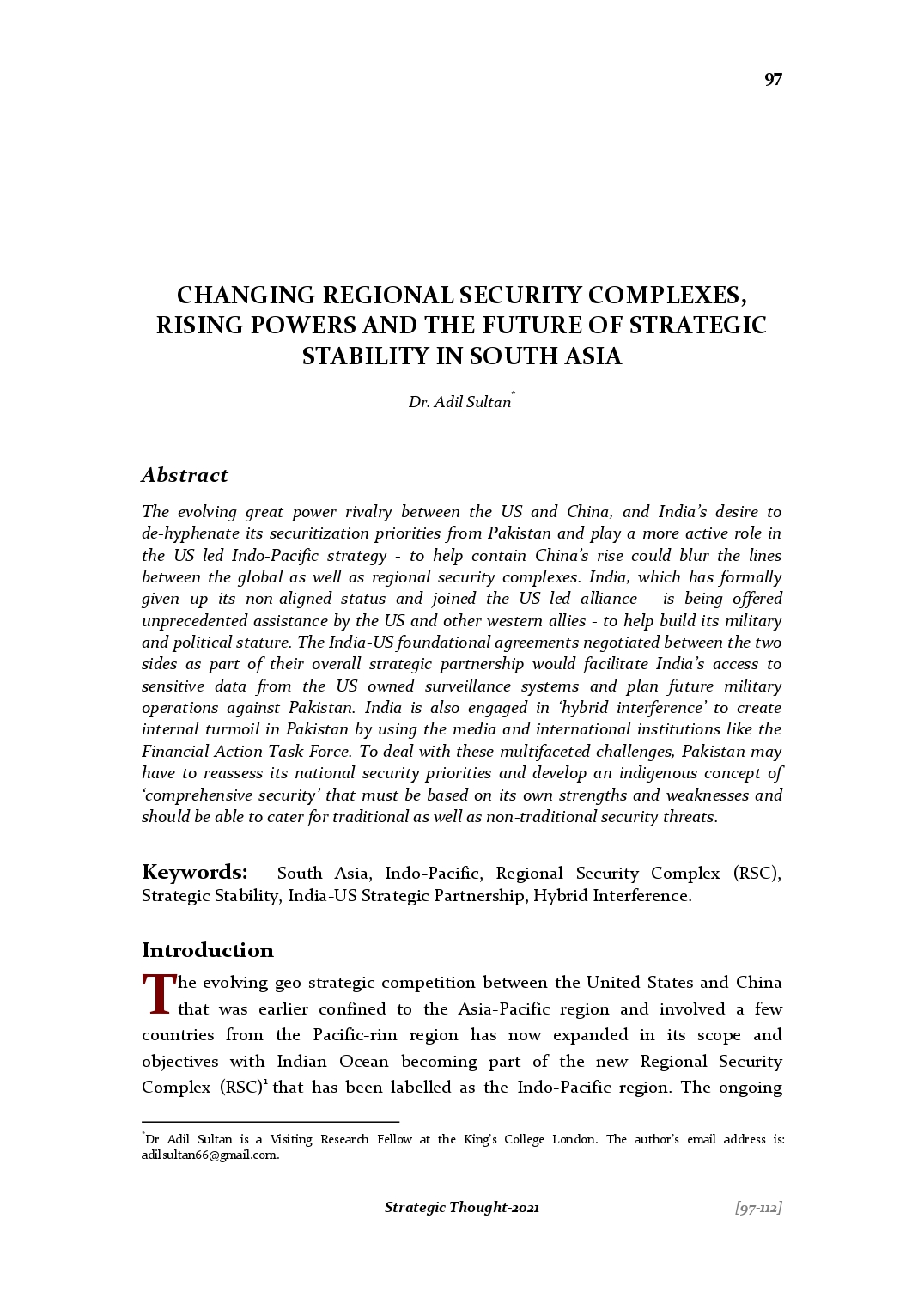Changing Regional Security Complexes, Rising Powers and the Future of Strategic Stability in South Asia
Keywords:
South Asia, Indo-Pacific, Regional Security Complex (RSC), Strategic Stability, India-US Strategic Partnership, Hybrid InterferenceAbstract
The evolving great power rivalry between the US and China, and India’s desire to
de-hyphenate its securitization priorities from Pakistan and play a more active role in the US led Indo-Pacific strategy - to help contain China’s rise could blur the lines between the global as well as regional security complexes. India, which has formally given up its non-aligned status and joined the US led alliance - is being offered unprecedented assistance by the US and other western allies - to help build its military and political stature. The India-US foundational agreements negotiated between the two sides as part of their overall strategic partnership would facilitate India’s access to sensitive data from the US owned surveillance systems and plan future military operations against Pakistan. India is also engaged in ‘hybrid interference’ to create internal turmoil in Pakistan by using the media and international institutions like the Financial Action Task Force. To deal with these multifaceted challenges, Pakistan may have to reassess its national security priorities and develop an indigenous concept of ‘comprehensive security’ that must be based on its own strengths and weaknesses and should be able to cater for traditional as well as non-traditional security threats.
Bibliography Entry
Sultan, Dr. Adil. 2021. "Changing Regional Security Complexes, Rising Powers and the Future of Strategic Stability in South Asia." Strategic Thought (3): 97-112.





